-
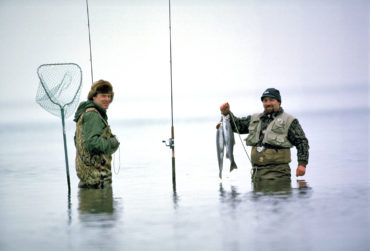 Commercial FishingFeature HomepageFish, Birds and AnimalsHistory and CultureIndigenous CommunitiesIndustry, Energy, Economic DevelopmentJames ProffittLake ErieLake HuronLake SuperiorMichiganNewsOhioOntarioRecreation and TourismRecreational Hunting and Fishing
Commercial FishingFeature HomepageFish, Birds and AnimalsHistory and CultureIndigenous CommunitiesIndustry, Energy, Economic DevelopmentJames ProffittLake ErieLake HuronLake SuperiorMichiganNewsOhioOntarioRecreation and TourismRecreational Hunting and FishingSetting Lake Erie limits
-Great Lakes managers re-visit fishing every year.
11 -
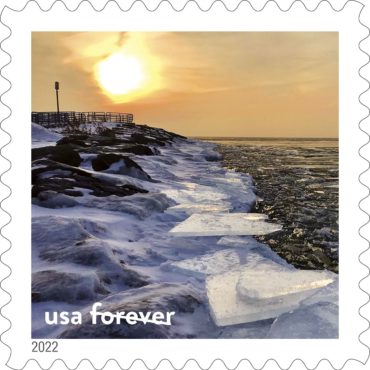 Feature HomepageFish, Birds and AnimalsHistory and CultureLake HuronLatest NewsMichiganNewsRecreation and TourismScience, Technology, ResearchShipwrecksTourismWisconsin
Feature HomepageFish, Birds and AnimalsHistory and CultureLake HuronLatest NewsMichiganNewsRecreation and TourismScience, Technology, ResearchShipwrecksTourismWisconsinNew stamps celebrate NOAA marine sanctuaries’ landscapes and marine life
-A Great Lakes national marine sanctuary is included in a new collection of U.S. postage stamps.
-
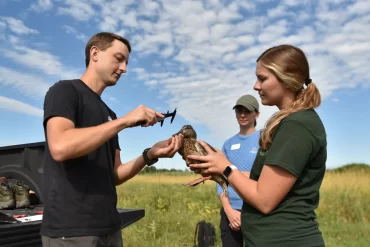 Charles Stewart Mott Foundation PartnershipFeature HomepageFish, Birds and AnimalsHabitat RestorationIllinoisIndianaLatest NewsMichiganNewsOhioPolitics, Policy, Environmental JusticeProtectResearch, Data and TechnologyScience, Technology, ResearchWater Quality and Restoration EffortsWisconsin
Charles Stewart Mott Foundation PartnershipFeature HomepageFish, Birds and AnimalsHabitat RestorationIllinoisIndianaLatest NewsMichiganNewsOhioPolitics, Policy, Environmental JusticeProtectResearch, Data and TechnologyScience, Technology, ResearchWater Quality and Restoration EffortsWisconsinWhy are mallard duck populations falling in the Great Lakes region?
-Mallard duck populations are down about 16 to 17 percent since the early 2000s. New technology might help determine why.
-
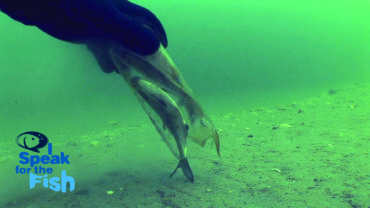 Feature HomepageFish, Birds and AnimalsHistory and CultureI Speak for the FishKathy JohnsonLake ErieLatest NewsMichiganNewsOhioRecreation and TourismScience, Technology, ResearchSt. Clair RiverTourism
Feature HomepageFish, Birds and AnimalsHistory and CultureI Speak for the FishKathy JohnsonLake ErieLatest NewsMichiganNewsOhioRecreation and TourismScience, Technology, ResearchSt. Clair RiverTourismI Speak for the Fish: A jarring look at gizzard shad
-In years past, acres of shad could be seen schooling just beneath Lake Erie’s surface. These days, schools large enough to block out the sun are a rare sight.
-
Feature HomepageFish, Birds and AnimalsHabitat RestorationNewsOntarioRecreation and TourismScience, Technology, ResearchThe CatchToronto
Tracking bird migration in Toronto’s accidental wilderness
-Conservation scientists at Toronto’s Tommy Thompson Park are studying and banding bird species who pass through during yearly migration.
-
Commercial FishingFeature HomepageFish, Birds and AnimalsIndustry, Energy, Economic DevelopmentInvasive SpeciesLatest NewsMichiganNewsScience, Technology, ResearchThe CatchWater Quality and Restoration Efforts
Whitefish recruitment
-Lake whitefish, a native species in the Great Lakes, is experiencing what is known in the world of fisheries biology as a “recruitment problem.”
-
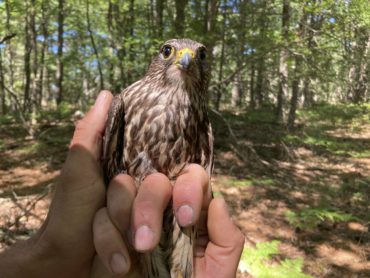 APClimate ChangeFeature HomepageFish, Birds and AnimalsHabitat RestorationLake MichiganMichiganNewsPolitics, Policy, Environmental JusticeScience, Technology, ResearchWater Quality and Restoration Efforts
APClimate ChangeFeature HomepageFish, Birds and AnimalsHabitat RestorationLake MichiganMichiganNewsPolitics, Policy, Environmental JusticeScience, Technology, ResearchWater Quality and Restoration EffortsAs species recover, some threaten others in more dire shape
-In a forest near Lake Michigan, two scientists attached a backpack tracking device to a merlin they’d lured into a net. The mission: help prevent the predatory species from gobbling up piping plovers — highly endangered shorebirds that nest nearby.
-
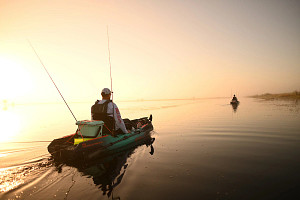 Beaches, Boating, Paddle Sports and SailingFeature HomepageFish, Birds and AnimalsJames ProffittLake ErieLatest NewsNewsOhioRecreation and TourismRecreational Hunting and FishingScience, Technology, ResearchTourism
Beaches, Boating, Paddle Sports and SailingFeature HomepageFish, Birds and AnimalsJames ProffittLake ErieLatest NewsNewsOhioRecreation and TourismRecreational Hunting and FishingScience, Technology, ResearchTourismGet personal with Lake Erie and walleye on a kayak
-A seasoned angler is Ohio’s first licensed Lake Erie kayak fishing guide.
-
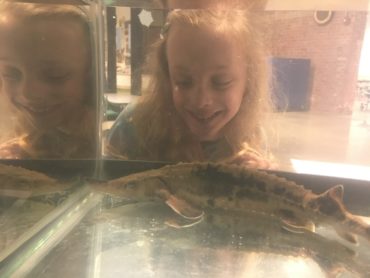 DetroitDetroit RiverFeature HomepageFish, Birds and AnimalsHabitat RestorationJohn HartigLake ErieLake HuronLatest NewsMichiganNewsOntarioPolitics, Policy, Environmental JusticeResearch, Data and TechnologyScience, Technology, ResearchSt. Clair RiverWater Quality and Restoration Efforts
DetroitDetroit RiverFeature HomepageFish, Birds and AnimalsHabitat RestorationJohn HartigLake ErieLake HuronLatest NewsMichiganNewsOntarioPolitics, Policy, Environmental JusticeResearch, Data and TechnologyScience, Technology, ResearchSt. Clair RiverWater Quality and Restoration EffortsGreat Lakes Moment: Students help save sturgeon
-Sturgeon for Tomorrow and a team of U.S. and Canadian fishery biologists have been working together to help reintroduce lake sturgeon in Great Lakes tributaries where they once thrived.
-
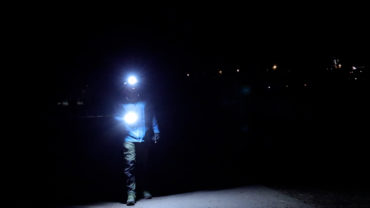 Feature HomepageFish, Birds and AnimalsIndustry, Energy, Economic DevelopmentLatest NewsMichiganNewsQuizScience, Technology, ResearchShipping and Ports
Feature HomepageFish, Birds and AnimalsIndustry, Energy, Economic DevelopmentLatest NewsMichiganNewsQuizScience, Technology, ResearchShipping and PortsSalamanders, Shipping and Shorelines: The Great Lakes Now Episode Quiz
-Test your knowledge on how a town is saving salamanders, how Great Lakes ports fit into global shipping and some of the latest news around the region.

